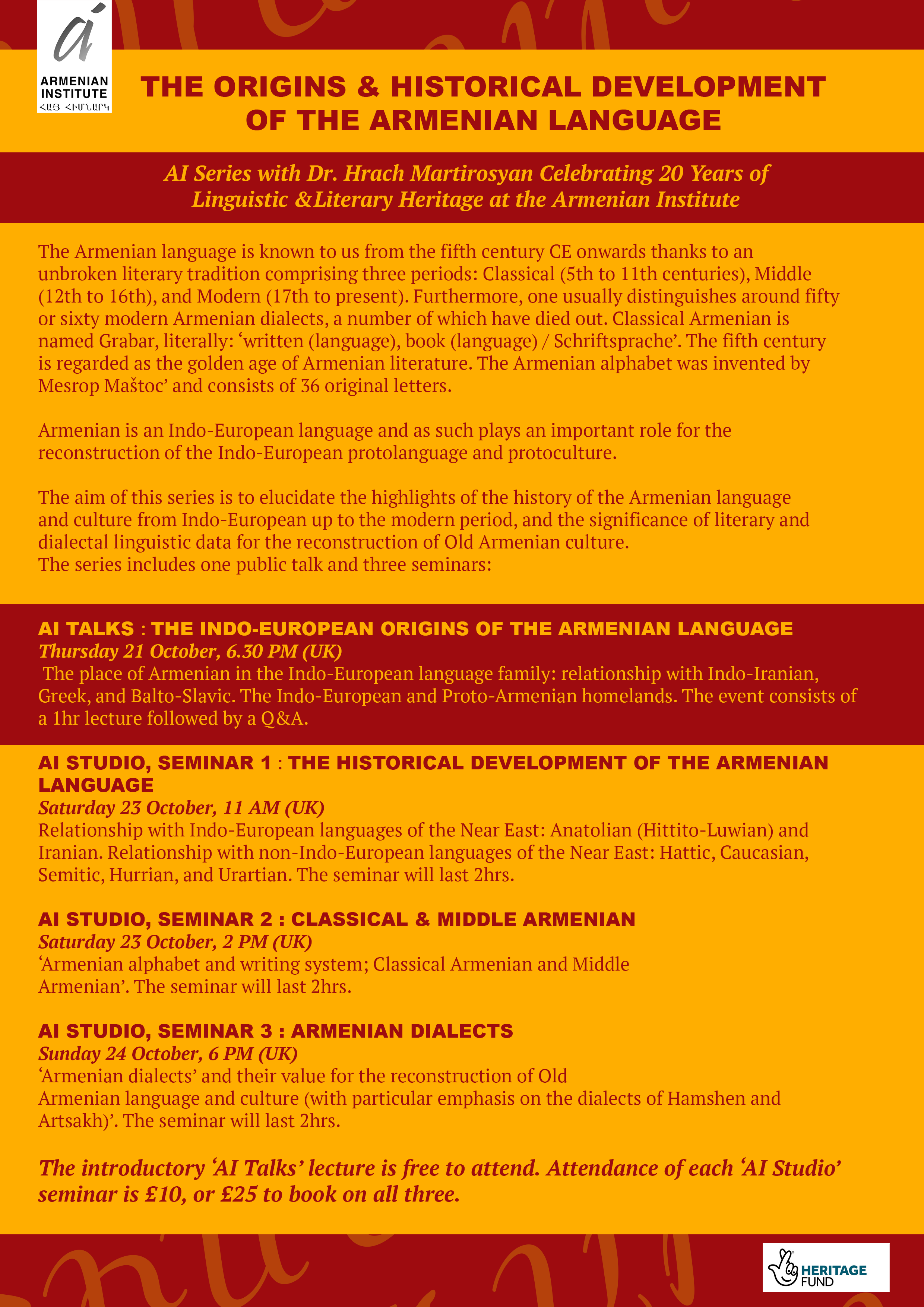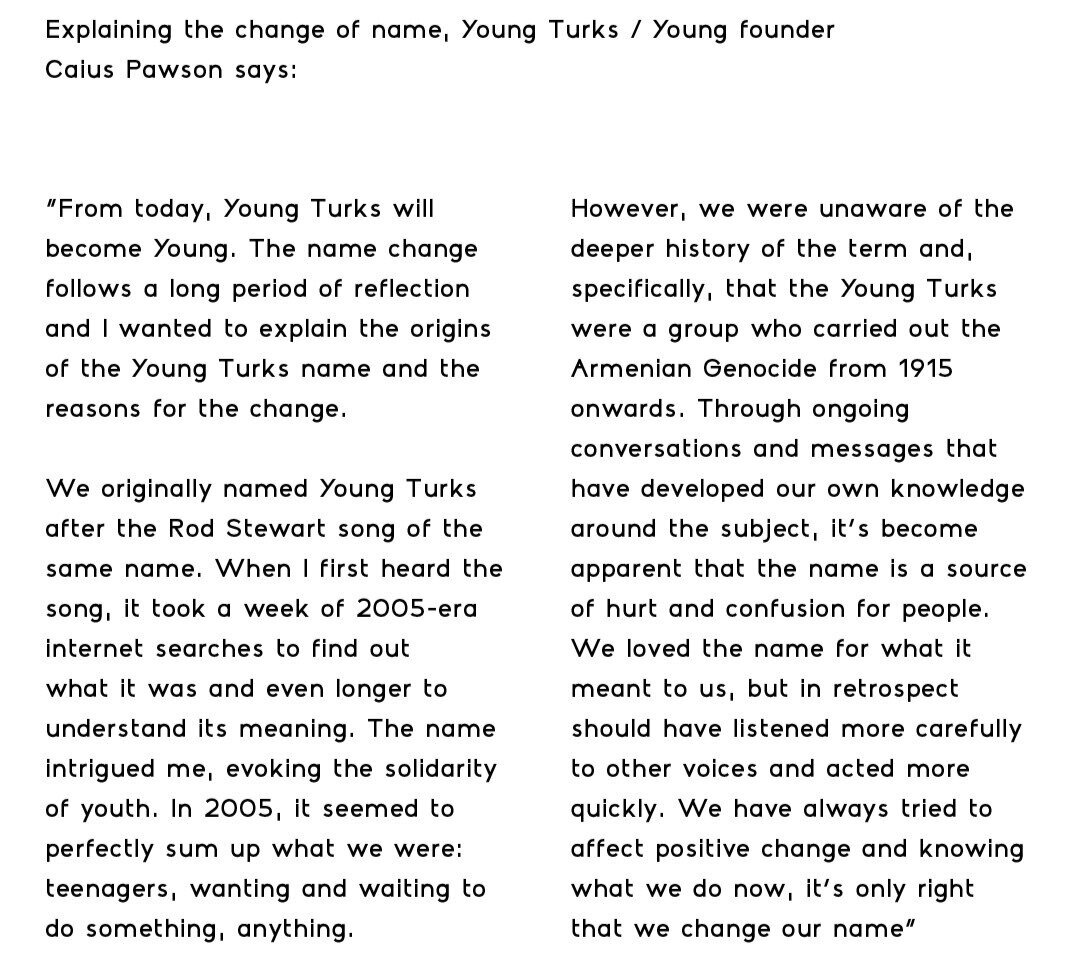As part of our dedicated programme celebrating 20 years of the Armenian Institute, we’re excited to announce the special series, ‘The Origins & Historical Development of the Armenian Language’ with Dr. Hrach Martirosyan. The series provides an overview of Armenian historical linguistics, from Indo-European roots and connections to Urartian, into the light of history with the invention of the alphabet and writing system, and ending on the various dialects of the spoken language.
Dr. Martirosyan is the world’s premier specialist in Armenian linguistics, and the author of the forthcoming Etymological Dictionary of the Armenian Inherited Lexicon, part of the University of Leiden’s project to compile a complete Indo-European etymological dictionary. He’s held positions at the University of Leiden, the Austrian Academy of Sciences in Vienna and UCLA, and published widely on Armenian historical linguistics and etymology. Alongside his strictly academic work, Hrach has long pioneered teaching outside of formal contexts, running an online course at the website Hayerenagitutyan akademia, and the project HayaSSA: Hiking Summer School of Armenology.
So this series is the perfect way to celebrate 20 years of linguistic heritage at AI, and Dr. Martirosyan is the perfect person to take us on this journey. Join us for the public lecture this Thursday, 6.30pm UK time, for an overview of Armenian’s Indo -European origins. For a deeper dive into Armenian’s origins join us again on Saturday at 11am UK time for the first AI studio workshop, and at 2pm we’ve got the second on Classical & Middle Armenian. Finally, on Sunday at 6pm UK time, the final in our AI Studio series explores Armenian dialects, in particular those of Hamshen and Artsakh.
For the full listing see below, or visit the events page on our website or on Facebook. The whole series is blended in-person and on Zoom - if you’re interested in attending in person please contact our programme manager at nik@armenianinstitute.org.uk
Also, the following week, at 7.30pm UK time on Tuesday 26th, Hrach will also join us for a special edition of one of our regular event formats - watch out for the announcement in the very near future...





































